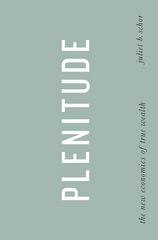They maximize the discounted sum of their stage payoffs with discount factor 5 E (I), 1).1 For each strategy prole below, nd the set of discount factors 5 under which the strategy prole is a subgameperfect equilibrium. (3) (b) Irrespective of the history, Irene plays Up in the even dates and Down in the odd dates; Jonathan plays Up in the odd dates and Down in the even dates. [10 pts] Irene plays Up in the even dates and Down in the odd dates while Jonathan plays the other way around until someone fails to go Up in a day that he is supposed to do so. They both stay Down thereafter. [lpts] For 71 days Irene goes Up and Jonathan stays Down; in the next n days Jonathan goes Up and Irene stays Down. This continues hack and forth until someone deviates. They both stay Down thereafter. [1 Opts] Irene goes Up on "Sundays", i.e., at t = 0,7,14,21,..., and stays Down on the other days, while Jonathan goes up everyday except for Sundays, when he rests Down, until someone deviates; they both stay Down thereafter. [15pts] At t = D, Irene goes Up and Jonathan stays Down, and then they alternate. If a seagull 2' fails to go Up at a history when 2' is supposed to go Up, then the next day 3' goes Up and the other seagull stays Down, and they keep alternating thereafter until someone fails to go Up when it is supposed to do so. (For example, given the history, if Irene is supposed to go Up at IE but stays Down, then Irene goes Up at t + 1, Jonathan goes Up at t + 2, and so on. If Irene stays down again at t + 1, then she is supposed to go up at t + 2, and Jonathan is supposed to go at t + 3, etc.) [15pts] Seagulls love shellsh. In order to break the shell, they need to y high up and drop the shellsh. The problem is the other seagulls on the beach are kleptoparasites, and they steal the shellsh if they can reach it rst. This question tells the story of two seagulls, named Irene and Jonathan, who live in a crowded beach where it is impossible to drop the shellsh and get it before some other gull steals it. The possible dates are t = 0,1,2,3,. ..with no upper bound. Everyday, simultaneously Irene and Jonathan choose one of the two actions: "Up"I or "Down". Up means tol y high up with the shellsh and drop it next to the other sea gull's nest, and Down means to stay down in the nest. Up costs at > 0, but if the other seagull is down, it eats the shellsh, getting payoff 'u ';> c. That is1 we consider the innitely repeated game with the following stage game








